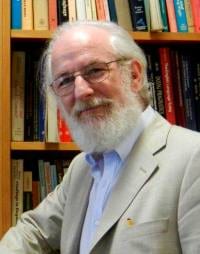English Grammar Day 2014
By zclef78, on 29 July 2014
In a world where economics and technology dominate, what is the place of grammar in our society? Is it important?
The English Grammar Day 2014 (held on July 4) sought to tackle these questions. Organised by Charlotte Brewer (University of Oxford English Language and Literature) and Bas Aarts (UCL English Language & Literature) in association with the British Library, this conference brought together some of the preeminent authorities on language use: Debbie Cameron, David Crystal, Dick Hudson, Debra Myhill and John Mullan.
The event traversed the history of the “grammar debate” from Jonathan Swift’s Proposal for Correcting, Improving, & Ascertaining the English Tongue (1712) to Michael Gove’s new curriculum. Yet the overriding theme of the day was the teaching of grammar (or lack thereof) in schools.
Montaigne’s assertion that ‘the greater part of the world’s troubles are due to questions of grammar’ was perhaps hyperbolic, but as Dick Hudson (UCL Psychology & Language Sciences) pointed out in the opening lecture, London is experiencing a literacy crisis. Citing an article in the Evening Standard from 2011 which claimed that one million people in London could not read, he discussed the consequences of the decline in the teaching of grammar in the 20th century. “From the 1920s to the 1960s grammar research died. The effect of a subject dying at university means that the next generation of school teachers never hear about it during their undergraduate years–a recipe for disaster”, he argued.
Each speaker had their own ideas of how this could be remedied, but the prevailing opinion was that a playfulness with language is imperative. As Debra Myhill observed, British humour is often based on grammatical nuance: grammar is the difference between knowing your shit and knowing you’re shit (not an example for the primary school kids).
Lindsey Thomas from the Buckinghamshire Learning Trust suggested that renaming grammar “understanding language” would help dispel the notion that grammar is inaccessible. Her assertion that “teachers find grammar scary”, whilst slightly patronising for a room full of teachers, flagged up the issue that the government are offering little support for the changes taking place with the new national curriculum in 2014.
Bas Aarts took this opportunity to announce the launch of a new web-based platform called Englicious that helps teachers with the demands of teaching grammar to students. He demonstrated the kind of activities designed to engage and create context for learning, including games using the format of an iPhone and translating martian.
David Crystal, exhibiting the same storytelling ability that he was advocating for the teaching of grammar, managed to hold the audience’s attention with his lilting Irish accent and narrative flair. “You have to put the notion of grammar in the background. It’s about meaning and clarity”, he said. Grammar needs context, it is bound up with the study of meaning and effect or ” the meat in between a semantic and pragmatic sandwich”, as he so colourfully put it. Adding these semantic and pragmatic perspectives makes the study of language meaningful and exciting.
The panel discussion that rounded off the event was subdued with all the speakers maintaining a staunchly descriptivist standpoint. It replayed the theme of “correct” and “incorrect” use of language that Jonnie Robinson, head of the voice archive at the British Library, had tackled earlier in his exploration of vernacular grammar. Debbie Cameron was the most vociferous with her criticism of what she saw as ‘verbal hygiene’, whilst John Mullan tried to introduce some debate by arguing for the singular pleasure of pointing out other people’s spelling errors: “everybody was delighted that the Republican candidate misspelt the word ‘potatoes'”.
It seemed fitting then, given the tone of the conference, that it should end with a comparison of the best, or worst, neologisms around today and the so called FCUK-isation of the English language. When it comes to grammar, the experts advocated taking a lesson from Toyota’s recent campaign slogan: ‘Go Fun Yourself’.
Links:
UCL English Language & Literature
University of Oxford Faculty of English
 Close
Close


